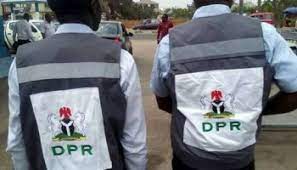Oil & Energy
DPR Resolves 48 Oil Industry Disputes In Three Months

The Department of Petroleum Resources (DPR) says a total number of 48 dispute cases in the oil and gas industry have been resolved since inauguration of its Alternative Dispute Resolution Centre (ADRC).
Sarki Auwalu, DPR director/chief executive officer, said this during the petroleum club’s second quarter business dinner on Wednesday.
The ADRC is one of the units in the National Oil and Gas Excellence Centre (NOGEC) established by Muhammadu Buhari on January 21, 2021.
The resolution centre was inaugurated in April 2021 with the principal aim of providing a platform where disputes in the industry could be settled in a timely, cost-effective, and mutually agreeable manner.
Auwalu said: “The centre is involved in mediation, reconciliation and arbitration. After the inauguration of the centre, we resolved about 48 cases, and right now, we have over 223 cases.
“Notable among them is the first case that we resolved which had been on for 18 years. It was resolved by simple mediation”.
DPR had announced that the ADRC, which fully commenced operations in May, has a six-member advisory council and a 20-member body of neutrals which has been mediating on disputes between players in the oil and gas value chain.
The members of the Advisory council include Auwalu as chairman, Saliu Said, Cecelia Olatoregun, Bayo Ojo, Daere Akobo, and Nicholas Odinuwe.
Oil & Energy
NERC, OYSERC Partner To Strengthen Regulation

Oil & Energy
NLC Faults FG’s 3trn Dept Payment To GenCos

Oil & Energy
PENGASSAN Rejects Presidential EO On Oil, Gas Revenue Remittance ……… Seeks PIA Review

-
Maritime1 day ago
Customs Declares War Against Narcotics Baron At Idiroko Border
-
Maritime1 day ago
Nigeria To Pilot Regional Fishing Vessels Register In Gulf Of Guinea —Oyetola
-

 Sports1 day ago
Sports1 day agoGombe-Gara Rejects Chelle $130,000 monthly salary
-
Maritime1 day ago
NIMASA,NAF Boost Unmanned Aerial Surveillance For Maritime Security
-
Maritime1 day ago
NIWA Collaborates ICPC TO Strengthen Integrity, Revenue
-

 Sports1 day ago
Sports1 day agoTEAM RIVERS SET TO WIN 4×400 ” MORROW” …Wins Triple jump Silver
-

 Sports1 day ago
Sports1 day agoNSC eyes international hosting rights
-
City Crime1 day ago
NCSU Hails Fubara Over 2025 New Telegraph Man Of The Year Award

